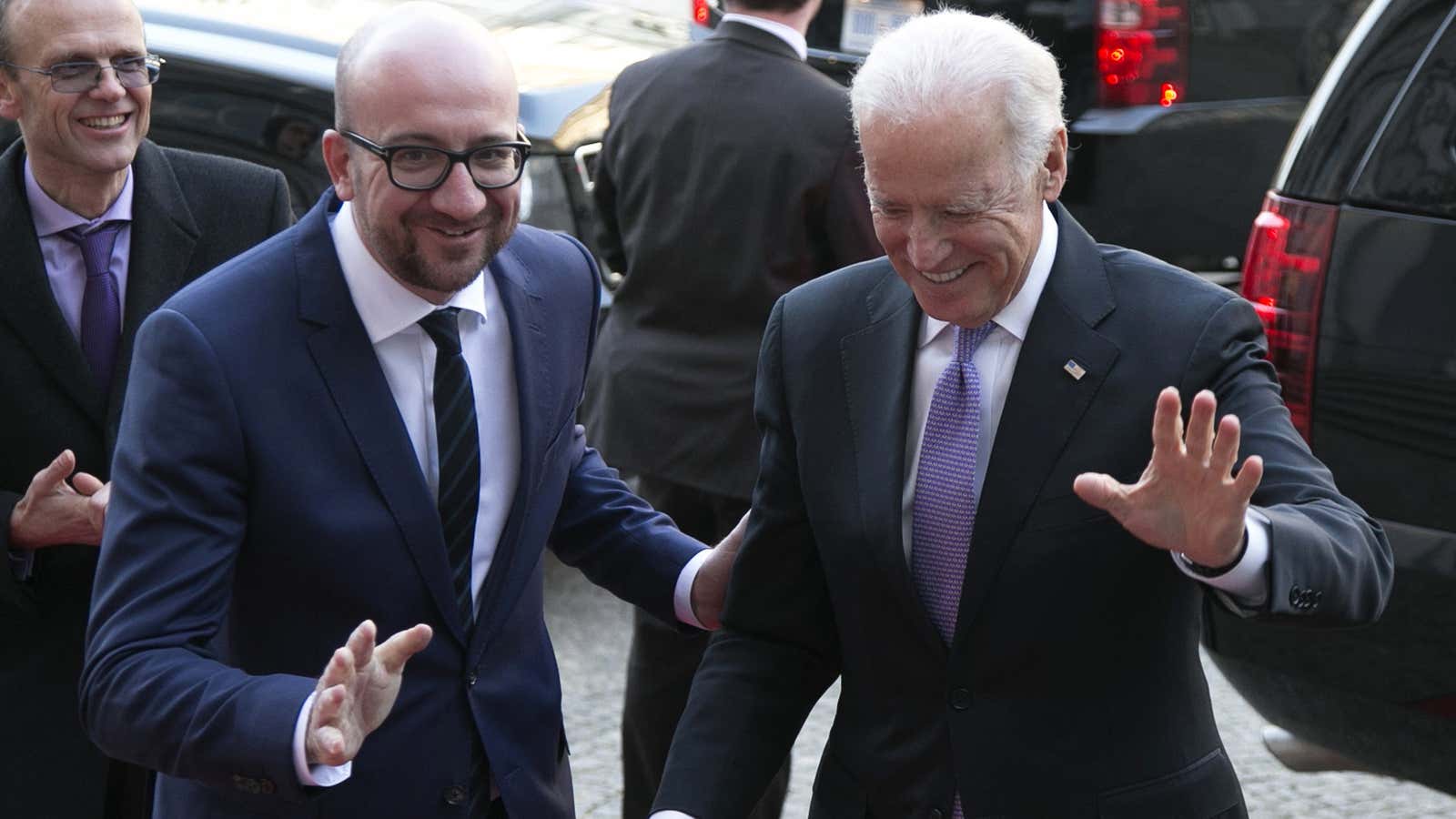Past US presidents could historically be relied on by allies to stand up for democracy and multilateral institutions (in words at least, if not always in deed). Countries expecting the same from Donald Trump’s administration have had a rocky four years.
For some, Trump represented a welcome break from America’s reputation of meddling in other countries’ affairs. For others, his disinterest in, and derision for, the rest of the world came at the worst time, as climate change and the coronavirus pandemic raged.
So it’s no surprise that after Joe Biden was inaugurated on Jan. 20, world leaders’ statements seemed to go beyond the boilerplate “diplo-speak” that greets most incoming US presidents. Sure, there were plenty of the standard, congratulatory “let’s work together” tweets. But there were also more personal ones, many of which acknowledged the significance of this particular transition of power, and the symbolism of the US appointing its first Black, South Asian, and female vice president.
Among the more positive responses to the inauguration, a theme emerged: that America is “back.”
How world leaders are reacting to Joe Biden’s inauguration
Anxiety over a warming climate and the rapid spread of the coronavirus permeated the statements of several leaders. Many commended Biden’s swift executive actions to recommit the US to the World Health Organization and the Paris climate agreement. There were also calls to renew alliances in Europe, the Indo-Pacific, and the Middle East.
Not every country commented positively (or at all) on the inauguration, showing that in many parts of the world, Biden faces an uphill battle in restoring relations. Israeli prime minister Benjamin Netanyahu, whose political career Trump may have rescued by moving the US embassy to Jerusalem, and brokering peace deals between Israel and its Arab neighbors, issued a statement praising Trump on the day of the inauguration. Iranian president Hassan Rouhani said: “We expect [the Biden administration] to…try in the next four years, if they can, to remove the stains of the past four years.” And a spokesperson for Hamas said Biden “must reverse the course of misguided and unjust policies against our people.”
Biden has the advantage of having known many of these world leaders a long time. As a longstanding member of the Senate foreign relations committee, he was there when many of them were first elected. As vice president for eight years, he negotiated treaties with them, sent troops to the same wars as they did, or watched them move on to leadership posts in international institutions. Here’s what they had to say:
